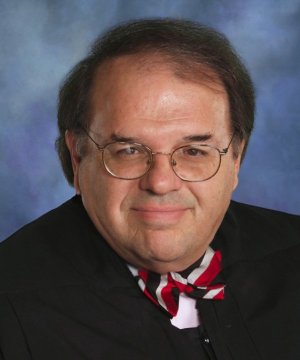Last week, we told you of a federal appeals court decision that said the National Security Agency's bulk telephone metadata spying could continue because the program Edward Snowden revealed was approved by Congress.
Today, we bring more judicial follies about the NSA phone spying program. US District Judge Richard Leon of the District of Columbia ruled Monday that a challenge to the program "will likely succeed in showing that the Program is indeed an unreasonable search under the Fourth Amendment." But in that decision, the judge said the program, because of the legal posture of the lawsuit, could continue unabated—but with a caveat. The authorities have to stop scooping up the telephone metadata on J.J. Little, a Los Angeles trial lawyer, and his boutique firm of a handful of lawyers now at the center of the case that is as old as the Snowden disclosure.
All of which means that, nearly 2.5 years following Snowden's revelation, a handful of Americans have beaten the NSA's spy program. But it would be foolhardy to suggest that it's anything close to a victory. That's because the program, which has successfully beaten multiple court challenges, has been spying on hundreds of millions of people, has been modified by Congress, and will expire in its original form on November 29.
Nevertheless, Judge Leon talked a tough game in his 43-page ruling in a case that ping-ponged to the appellate courts and back.
With the government’s authority to operate the bulk telephony metadata program quickly coming to an end, this case is perhaps the last chapter in the judiciary’s evaluation of this particular program’s compatibility with the Constitution. It will not, however, be the last chapter in the ongoing struggle to balance privacy rights and national security interests under our Constitution in an age of evolving technological wizardry. Although this Court appreciates the zealousness with which the Government seeks to protect the citizens of our Nation, the same Government bears just as great a responsibility to protect the individual liberties of those very citizens.
Snowden disclosed that the nation's telecoms forward to the NSA the phone numbers of both parties in all calls, calling card numbers, the length and time of the calls, and the international mobile subscriber identity (ISMI) number for mobile callers. The NSA keeps a running database of that information. The NSA says it queries the data solely to combat terrorism and that one party of a call must be believed to have been overseas.
That program has been altered and is expiring. President Barack Obama signed the USA Freedom Act on June 2, which allowed the bulk collection program to last for another 180 days. Under the new law, the metadata instead will stay with the telecoms, and won't automatically be forwarded to the NSA in bulk. The NSA may still access the metadata with the secret FISA Court's approval if the government maintains there is a reasonable suspicion that the phone data of a target is relevant to a terror investigation and at least one party to the call is overseas.
Like the program Snowden disclosed, the Fourth Amendment standard of probable cause does not apply to the USA Freedom Act.
Listing image by cesar bojorquez
reader comments
36